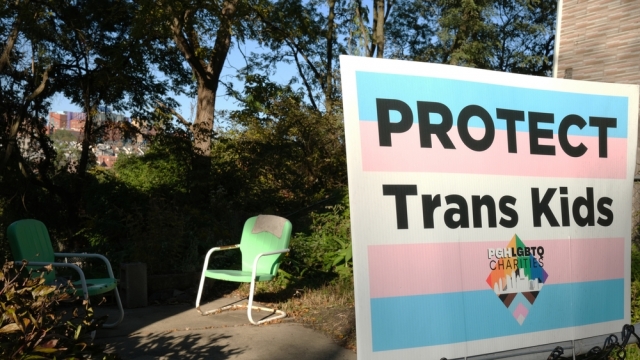In less than a month, a new law goes into effect in Tennessee making gender transition care for individuals under 18 years old illegal in the state.
Despite the law going into effect on July 1, its consequences are already being felt, leading families to make tough decisions. Nashville resident Kristen Chapman already has plans to relocate her family to ensure her 15-year-old transgender daughter, Willow, can continue receiving care.
Chapman recently received a letter from her daughter's health care provider informing her that the practice will no longer offer gender-affirming care services due to the forthcoming state law.
The legislation prohibits doctors from prescribing puberty blockers, hormones, or providing any other gender-affirming care to individuals under the age of 18.
Although the law includes a few exceptions, Chapman believes immediate action is necessary to safeguard her daughter's well-being.
Willow has been receiving puberty blockers every three months since she turned 12, significantly improving her quality of life, Chapman said.
SEE MORE: US judge blocks Florida's ban on gender-affirming care for minors
According to Chapman, prior to her transition, Willow experienced extreme withdrawal, depression and anxiety. Desiring to maintain her daughter's newfound confidence and happiness, Chapman made the difficult decision to split her family, relocating half to Virginia, where Willow's treatment can continue. They chose Virginia due to its proximity to Willow's father and brother, who will remain in Tennessee.
Obtaining puberty blockers as a minor has proved challenging, Chapman said. Her family is not alone in their struggle, as countless families with minors receiving gender-affirming care in Tennessee are receiving similar letters.
Reflecting on the journey, Chapman remembered the pivotal moment when her 11-year-old daughter emailed her, stating, "I'm trans."
"In 2020, soon after school was dismissed, I got an email from my daughter that said one sentence: 'I’m trans.' It took about a year for us to begin treatment. There's a lot of physical tests, blood tests, psychological and mental health tests," Chapman said.
The relocation to another state means uprooting most of Willow's siblings, causing them to leave their friends in the midst of high school. However, for the sake of Willow's ongoing treatment and well-being, Chapman believes it is a necessary sacrifice.
SEE MORE: Campaign launched to address LGBTQ+ mental health needs
Recently, Willow went in for her final shot in Tennessee, prompting Chapman to reflect on the transformative power of puberty blockers. She said even the doctors noticed the remarkable change.
"Her doctor told her, 'You came in and didn't make any eye contact with me at all. You barely spoke. You also had extreme dysphoria. Now, you walk into my office, you're joking and laughing, you're confident. You're a different person,'" Chapman stated.
Chapman hates leaving the state she loves but thinks she's making the right decision. She sees herself as doing what any mother would do.
"If my child didn't get a shot in August, I can guarantee there would be psychiatric ramifications by December. Do I want my child alive and well or not? That's the choice," Chapman said.
While Willow's father and older brother, who is in college nearby, will remain in Tennessee, the family is actively seeking a new home in Virginia, a state they say is better suited to their needs.
Chapman has launched a GoFundMe for anyone willing to help them relocate.
The story was originally published by Aaron Cantrell for Scripps News Nashville.
Trending stories at Scrippsnews.com



